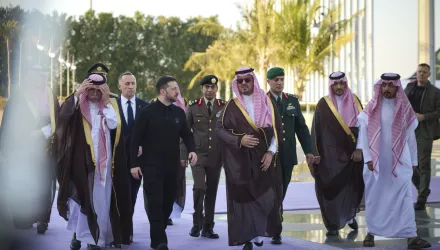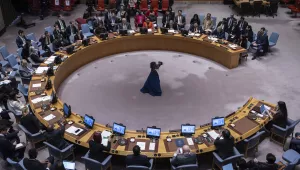
This is an English-language summary of a Hebrew-language op-ed that appeared in Ynet on July 9, 2019. This summary was provided by the author.
With Iran's announcement that it has now begun exceeding the quantity and level of highly enriched uranium it is permitted under the nuclear deal, Trump's policy of "maximal pressure" has reached a critical turning point. U.S. sanctions have caused a severe economic crisis in Iran, but the objective is a change in Iranian policy, not just to cause pain, and so far there are no signs of that, to the contrary.
Iran may be the first to blink in the escalatory cycle with the United States, but this is far from assured. Trump has made it abundantly clear that he does not wish a further military conflict in the Middle East, especially during an election year, but is also publicly committed to preventing Iran from going nuclear. Iranian leaders, more convinced than ever of the strategic imperative of a nuclear capability, cannot allow themselves to appear as the side that simply caved in. If a "better" deal is to be achieved, it will have to be better for Iran too.
In these circumstances, Israel may find itself alone in the military campaign, but the diplomatic route holds out dangers as well. Much as Trump "fell in love" with the leader of North Korea in their very first meeting, he may develop similarly strong feelings for Supreme Leader, Khamenai. Israel may end up paying the price for an overly hasty deal. This is particularly risk fraught at a time when Israel is caught up in its own elections, and its leader is fighting not just for his political future, but very freedom.
Statements and views expressed in this commentary are solely those of the author and do not imply endorsement by Harvard University, the Harvard Kennedy School, or the Belfer Center for Science and International Affairs.
Freilich, Chuck."Israel May Stand Alone vs Iran." Belfer Center for Science and International Affairs, Harvard Kennedy School, July 23, 2019.





